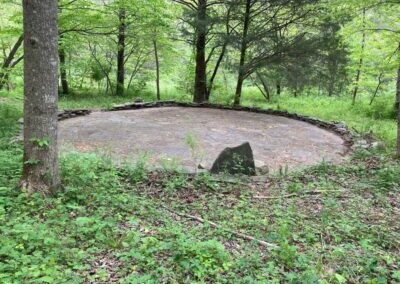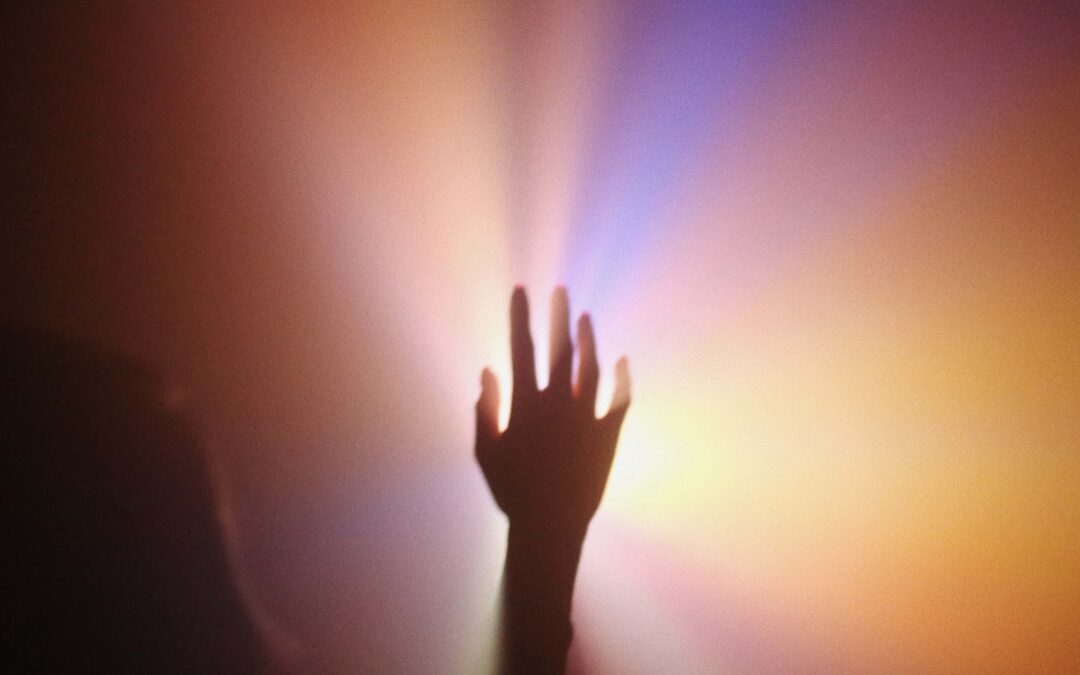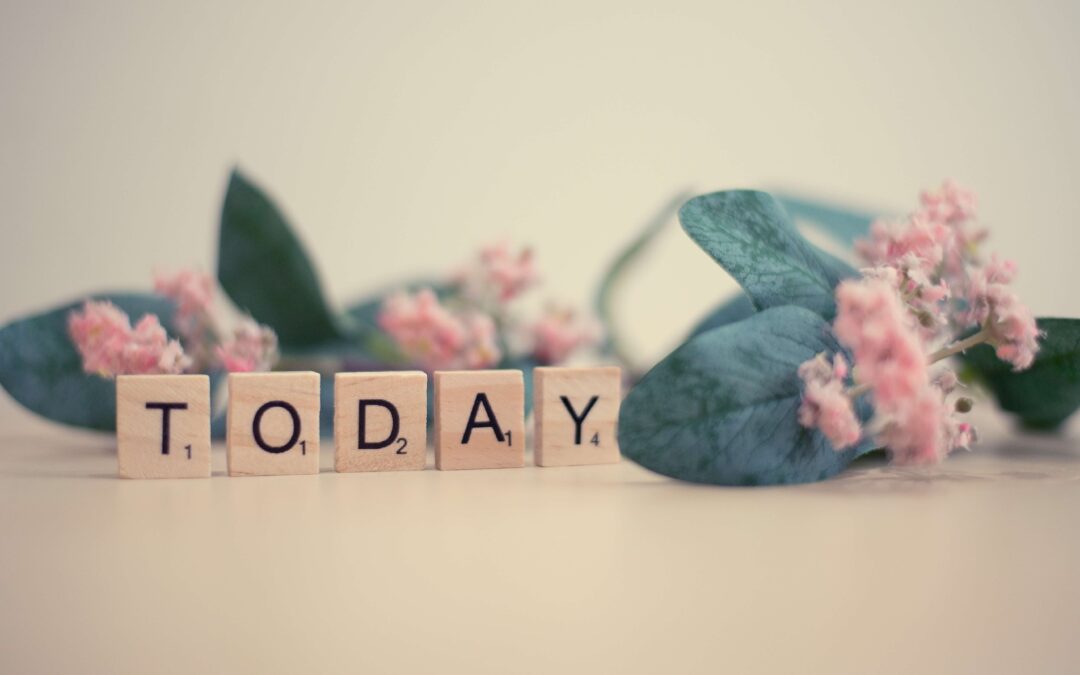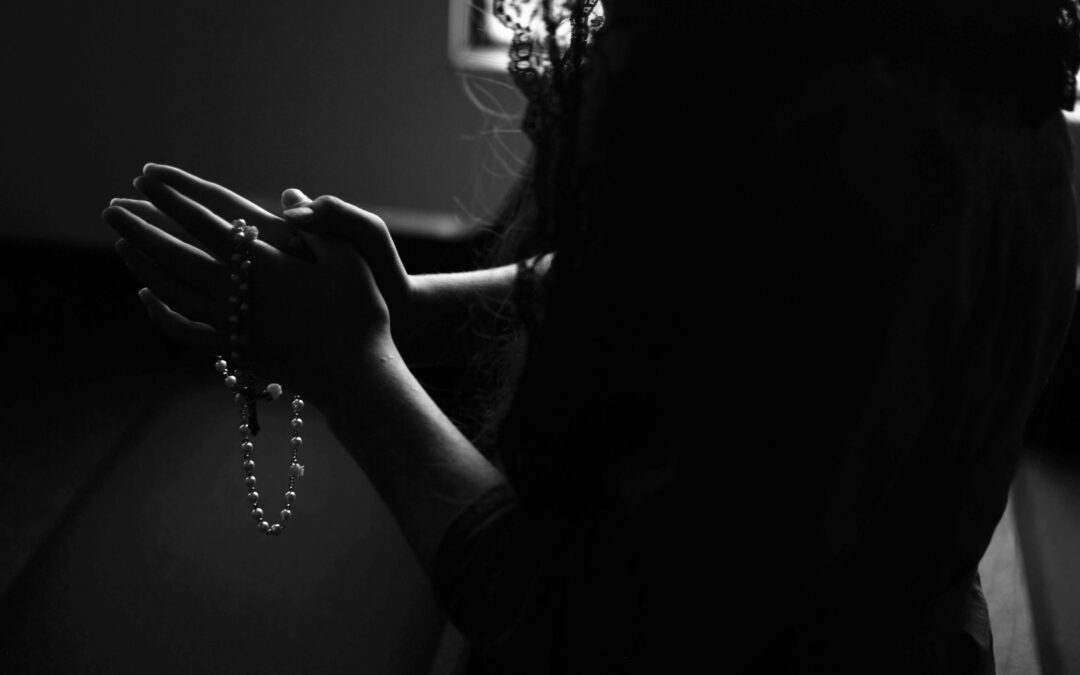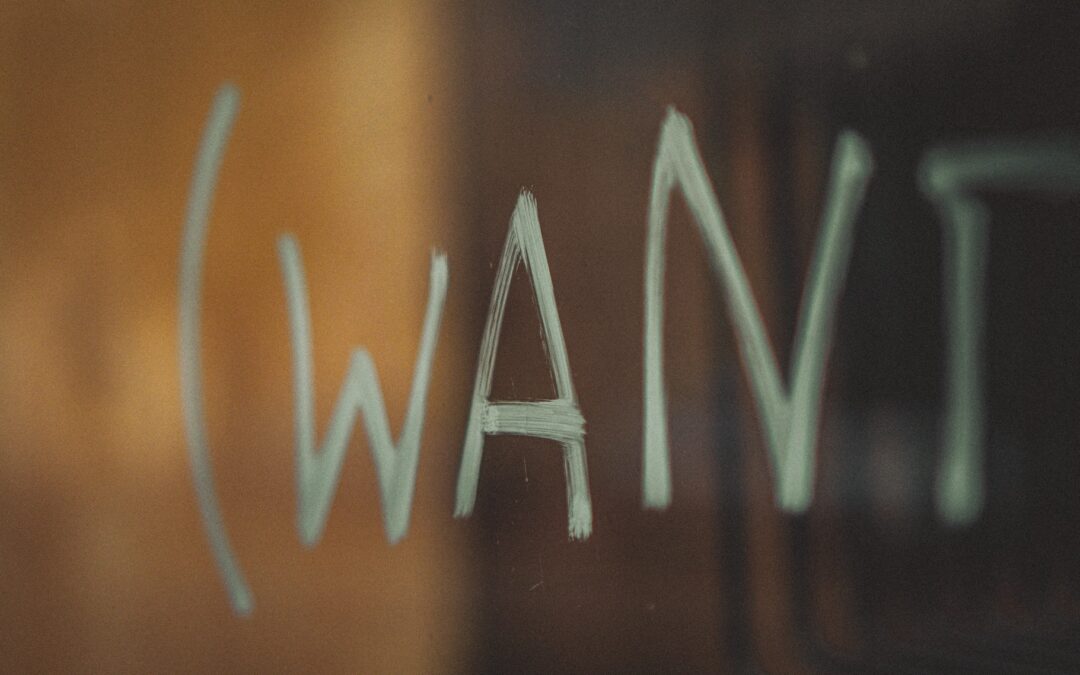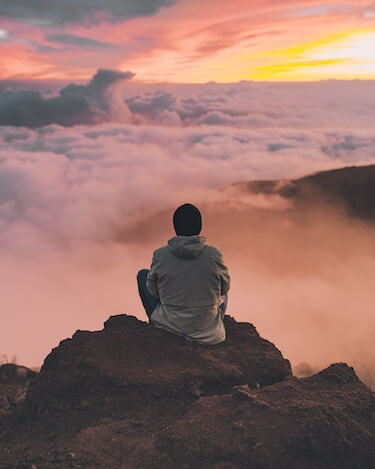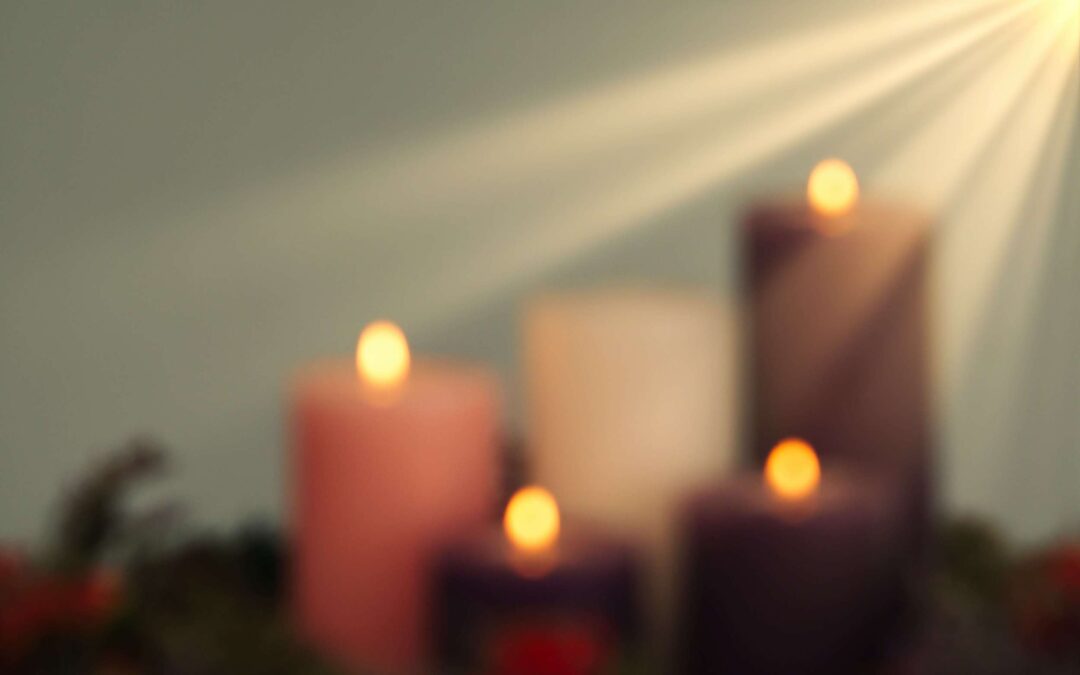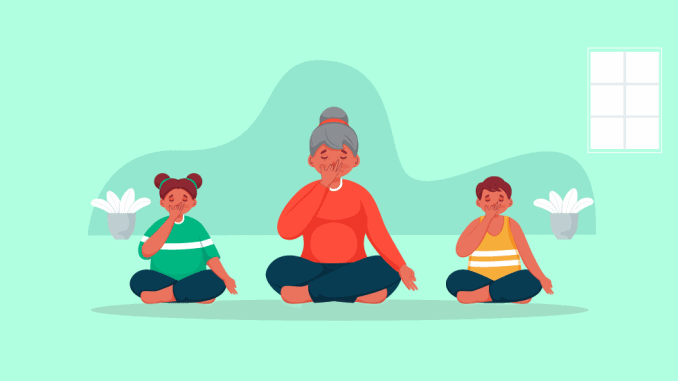As a meditator, my meaning of religion would be very different from the general audience, because I see religion from inside, not from outside. Usually, we see religion from the outside. What it offers is the comfort it gives us and the identity it gives us. It’s very deep, you know. It’s not just about the practices and rituals of religion. It’s part of your life; your name, your habits, the food that you eat, the clothes you wear, the kind of friends you have, the moral framework you have. In a way, everything comes from religion, whether you want it or not. It’s very rarely that an individual takes birth and grows up as an atheist without any beliefs. In fact, atheism is a very individualistic choice you make much later in your life, when you begin to develop your own understanding of life, when you are able to compare different experiences, and compare different moral philosophies. You come to a conclusion whether you want to believe in God or not. But for most, during the early childhood and growing up years, you believe in something. Either you believe in the God that your parents are worshipping, or you believe in something that you’ve come to connect with. It’s a very important connection, and religion offers all that.
As a meditator, I have always been very critical about religion. They seem to have absolutely diverted away from the main purpose. What is the point of religion? What is the point of spirituality? What is the point of meditation? They seem to be doing something else, but we cannot dismiss the impact of religion on our lives. Religion is a reminder that there is something beyond logic; there is something beyond science, beyond 1+1=2, beyond the mathematics and mechanics of life. There is something beyond making money, living, and dying. That unknown zone that we cannot grasp, we cannot immediately understand, is what we collectively designate as religion. Religion is that semi-conscious space where we know there is something here, and yet we don’t understand it fully; you have to approach it with the sense of belief, with the sense of trust. If you’re too logical, if you’re too systematic in your approach, you would throw religion out very quickly, because the purpose is not logic or reasoning, but to help you to connect with something inside which is beyond all this. In a way, it is a way of connecting with the spirit.
There is the mind, there is the body, and then there is something more to us. We can understand the body and mind scientifically. We can systematically study them. We can see what they do, what they don’t do. Emotions, feelings, love, connection, all these things are beyond the realm of science. Our subjective experience of life, our perception of beauty – some of the most beautiful things in the world cannot be grasped by logic and science. That space is always empty in us; nothing can enter that space. Our sophistication, our achievements of life, our lifestyle, relationships, whatever it is that we do in this world, even if we do it very successfully, there’s a part of us that can never be touched by any of these things.
Religion promises to fulfill that space. The most important thing to remember is that it promises. Whether it does it or not is a different matter, because it completely depends on the individual and has nothing to do with the religion. Religion only reminds you that something like this happened at some point in time. This is the message, this is the teaching, and this is how we understand. There is no religion without scripture; scripture is fundamental to religion. You might think today that in Hinduism they just worship idols, they go to temples, where is the scripture? If you will pay attention, you will see the whole setup of the temple, the idols, everything is based on certain scriptural understandings. You might not know the scripture, but the people who are dealing with those things – the priest, the religious people – they are always doing things according to some theory, some concept of religion. They are not just doing it randomly. That scripture is the foundation of every religion: Religions that worship idols, religions that hate idols, religions that worship something else altogether, whatever it might be. If you look at the three major religions; Christianity, Hinduism and Islam, they are fundamentally different in their approaches. Hinduism really doesn’t have any one single set of philosophies; it’s a mixture of ideologies and beliefs with multiple gods. Christianity is belief in one God, one son, and one Holy Spirit. Islam is also pretty similar; it’s one God. Again there is no form. They’re fundamentally different in a sense that all of them are believing in something beyond; one something, but the way they connect with it is very different.
This is where religions get separated. The belief with which you approach that Oneness changes religion. In Christianity you approach that Oneness through Jesus. In Islam you approach that Oneness through a formless being. You simply call him God, or Allah. But, it’s a formless being, a formless presence. Of course there’s a prophet, there is Muhammad, but what you are worshiping is the formless thing. That would seem to be approaching through multiple teachings, but ultimately the objective is to connect with something beyond. Although all three of these religions fundamentally seem to be doing different things, they are talking about a collective memory of something. That collective memory is what we identify as religion. If we take away their collective memory, then we have no connection to our past.
If we completely take religion out of our lives, what do we fill it with? What do we replace it with? In a way, mindfulness, meditation, spirituality, searching for the self – enlightenment, it’s all part of that religious realm. We don’t understand it, but it’s all connected. It might be distorted, but it’s all connected. Religiousness is much beyond just worshipping an idol, just reciting of a few verses, or just believing in something your parents or a priest has told you.
Religiousness is a feeling; it’s an emotion toward something beyond. For example, you would think a man like Einstein should have nothing to do with religion; he was the definition of scientific temperament. He approached everything through science and logic. He was a mathematician, he was a logician, he was a physician – a completely different being. Yet he said, “I am religious in a sense that there is something beyond the grasp of our immediate mind and body. There’s something beyond us, and I believe in that. I thirst for that. I long for that, and I see that in the world. In that sense, and only in that sense, I am religious.” He made it very clear, because usually when you say, “I’m religious” people tend to think Okay, which religion? What Einstein was saying was something different. He was saying, “I am religious, but I don’t follow any religion.” It’s something completely different. Religiousness is a different phenomenon altogether. In fact, it’s one of the most beautiful sensations to have: To believe in something beyond. If you take that feeling of religiousness out completely, you feel very empty and hollow. Life seems to be pointless. It seems to be meaningless.
But look what religions have done – major religions of the world, including the smaller ones: They have become too obsessed with the idea of taking this message to as many people as possible, while the actual purpose of religion should be making that one single individual deeply understand the purpose and meaning of religiousness. That is the hard part. You need a teacher for that, you need a guide, you need somebody to spend time with you to teach you, help you, which is the hardest path. The easiest path is to say, “Here is the idol. Just go worship. Come once in a week. Get some water sprinkled on your head, go on a pilgrimage at least once in your lifetime, or do prayer four or five times a day.” I’m not ridiculing these practices, all I’m trying to say is it’s an easy way out. Religiousness is such a deep, transformative process, and yet religions offer it as a freebie. You are a part of our religion; do this, do that – as if that is enough. That’s another big flaw of religion; that it promises something unimaginably spectacular for such little effort on your part. It tells you, You be greedy, you be materialistic, you continue to do all the things that you do in the worldly sense. You don’t have to transmute your mind or your body, you don’t have to fundamentally change the way you live, you only have to believe in these things. They make it easy, they make it convenient, while religiousness is the exact opposite.
It’s much harder. It’s about changing your thoughts. It’s about changing the way you think. It’s about changing your perception of reality. It’s about understanding yourself better, and understanding people. It’s about love and compassion, and so many other things. It’s about real things. Religiousness is real transformation, which takes time, and it happens over a period of time. What religions have done is they seem to promise it without any effort. All you have to do is all of these rituals, and what you are searching for is promised to you – when? At the end of your life! If you do these things, at the end of your life you will go to heaven. If you don’t do these things, you will go to hell. It’s a childish way of persuading somebody to transform their lives. In fact, religion is not even telling them to transform their lives. Religion is just telling them to do the very same thing, but they are in a way diverting people’s attention away from something real; that real transformation is possible. It is possible to go beyond anger in reality. It is possible to gain control over your thoughts in reality. Tell me, which religion talks about these things? Which religion talks about self-transformation? Which religion talks about using the knowledge of the past to understand oneself deeper, so that we can become something better? That is not what religions are occupied with now. They’re more occupied with beliefs and ideas. Beliefs that were given to us as teachings, as guidance, as signposts, have become slogans now: That’s the difference. What was supposed to be used as a signpost, as a guide, has replaced the path. Instead of the signpost saying left – go left, they’ve removed the path and they’ve put the signpost in the middle and it says, Pray here.
Some people have no sense of direction. They go to God, they worship, practice the rituals. Of course, all these things add tremendous meaning to us as individuals. It gives us a sense of identity. It connects us to our past, that’s for sure. Without religion, you feel more lost. There is no denying it. Let’s say you’re a part of the Hindu religion and you feel connected to hundreds and thousands of years of history. You see yourself as a part of those people, as an extension of those people. There is a satisfaction knowing that you are a part of this ancient, rich, vibrant, culture. There is no denying it.
But, does that take away your anger? Does it take away your uncertainty of who you are? Does it take away your fears and frustrations? No. In a way, it only hides them. Real transformation takes time. It is a process. That is what religiousness is: To keep striving for that something beyond. To look for that beautiful space within us, not somewhere outside. It is still beyond our reach, and we need to keep striving for it. This is how religions start. If you look at the starting point of all religions, there’s always a teacher, an individual, a living, breathing, normal, conscious, alive human being. There is no Islam without Muhammad. There is no Christianity without Jesus, and there is no Hinduism without hundreds and thousands of enlightened beings. You cannot imagine the entire landscape of religion by taking away the individuals who actually lived a certain kind of life. That’s what a Buddha, a Jesus, or Muhammad represent. They lived a certain kind of life and people wanted to emulate that form of life. They wanted to understand it. So, those who wanted to follow Muhammad became Muslim. Those who wanted to follow Jesus became Christian. Those who chose to stay away remained Jews.
Over a period of time, we become so attached to the form, the image of the person, we forget the essence. We forget the actual message. We forget the actual teaching, because to actually follow teacher is a lot more difficult. To really understand his mind, to understand what he’s trying to teach and to actually practice those teachings, takes a lot more effort. It takes a lot more than just praying. It takes a more dedicated, focused, approach. Religiousness is very individualistic. When I choose to meditate, to sit quiet, I’m choosing to be religious; not following religion, but I’m choosing to connect with that something beyond.
As a meditator, one part of me will always be very critical about religion; in fact, extremely critical, because they are supposed to be guiding people toward their inner self. Instead they’re guiding them in the opposite direction. The fundamental difference between religion and spirituality is that spirituality is about you, it’s about your mind, your body, understanding who you are from inside. Religion is about that thing we have glorified, whatever that might be. It could be emptiness, it could be silence, it could be a formless god, or it could be a man hanging on the cross, or a stone idol. Whatever it might be – something else has become more important than you. That is the fundamental issue a meditator will always have with religion. It’s the same issue Buddha had with Hinduism. It’s the same issue Jesus had with Judaism. It’s the same issue Muhammad had with the prevailing religious customs of his time.
Who are these people? These people are revolutionaries. They were able to see what people are missing, what is keeping people in bondage. It’s their beliefs, it’s their ideas. Something has to set them free. All of these teachers speak about the very same thing: There is something inside you. If you’re able to connect with that, it sets you free. How do you connect to that if you are totally bound to your religious systems, rituals, and practices? The first step is to become critical of the religion that you are bonding with. Not to discard it, but to understand it. There is a big difference.
I’m not talking about atheism. I’m not talking about being non-religious. In fact, I’m talking about being more religious. True religiousness is to understand your religion: What is it? What is it that I’m being given here? Is there some value in it? That is why it has been passed on. That is why so many people practice in believing it and look for the real value in it. People are getting some benefits from religion; that’s why they’re bound to it. What if there is something more to it? Let me explore it. Let me understand it. That is how the life of a Jesus, of a Buddha, a Muhammad start: They begin to inquire deeper. That mystical dimension of religion is what they became fascinated with.
Jesus became fascinated with the mystical realm of Judaism. He was part of a community – a group of people – called the Essenes, and they belonged to a larger group called the Nazarenes. Look at the word Nazarene. It comes from the ancient Hebrew word “nazara” which means “the Truth”. These were the people who were seeking the Truth. You can pray to God with your eyes closed, but when you’re seeking, you have to keep them open. These were the group of people who were seeking, who were searching. It was a part of Judaism, but it was the mystical part. It’s the same with Muhammad. He was part of a deeply entrenched religious belief system, but he wanted to be alone. He wanted to spend time in silence. That is why he used to go to that cave and spend hours and hours. Of course, the Koran doesn’t give the details of his meditation, but it very clearly says that he spent a lot of time in silence. Then he began to hear the voices. When he began to recite the songs that he was hearing, that became the Koran, or the voice of God.
In a meditative sense, what the Koran is trying to say is, when you are silent, when you are empty, when you are alone, when your mind is not clouded by thoughts, something happens to you. You experience a transcendence, what Buddha called nothingness. Buddha called nothingness the ultimate experience of life. When you’re not thinking about anything, when you’re not desiring for anything, when you are empty and hollow, you experience something. The central space of all religions is that individual and his meditative state. There is no Jesus without a meditative state, and there is no Christianity without Jesus. So there is no Christianity without meditation, and yet Christianity looks at meditation as something very alien, very different. In fact, it looks at meditation as Buddhist. Christians don’t meditate. Well, if Christians don’t meditate, then why are they following Jesus? He was a meditator for about 10-12 years. He was in the deepest possible meditation. That is what he shared with the people after he came out of his meditation. If you listen to his words, it’s like he’s another version of Buddha; same love, same compassion, same unconditional love for his people. He’s saying the exact same thing, but was telling it in a way that his people could understand. Buddha spoke in a way that Hindus could understand. Jesus spoke in a way the Jews could understand.
Unlike today, people were deeply entrenched in their religion. Two thousand years ago, religion was everything to an individual. There is no way you can connect with an individual by negating their religion. You have to somehow convince them that your religion is trying to say this. What I’m trying to say is the very same thing religions are telling us, but we have misunderstood. That is the only way people can understand, because that’s the fact. Their religions are not false, they’ve become way too diluted. They’ve become very convenient. The Truth is there, but it’s so diluted that they’re not getting the real taste of it. That is where, once in a while, a Jesus, a Buddha, a Muhammad, steps up and says, “You are searching for it, here is the direct path.” This is exactly what the scriptures say. If you go back and read the Koran, the Gita or the Bible again, and read it from a meditative point of view – from the point of view of the individual who was trying to transform himself, then you will see a completely different narrative flowing in the scriptures. You’ll be amazed as to how simple the messages are and how complicated we have made them.
Religiousness is the highest possible thing that you can search for, but religion is stuck with certain ideas and ideology. As an individual, if you are able to understand your religion better, if you’re able to go a little deeper while enjoying all the comforts that religion gives you, you don’t have to run away from it. You don’t have to change your name. You don’t have to change how you dress, and you don’t have to change your food habits. It’s all a part of your religion. In fact, that’s the beauty of it. You don’t have to let go of any of that, and still make religion something more by inquiring deeper into it. When you inquire deeper, you start experiencing something of whatever religion you are.
Atheism is also a form of belief. There’s nothing superior about believing in God or not. Both are belief systems. What is superior is to understand the nature of believing: Where does this come from? Why do we need to believe in something? What is the necessity for, and how do I fully understand this landscape of belief? Religion is nothing but a landscape of belief; it’s not logic, it’s not time. It’s just believing internally, and if you can use that to transform yourself then you get the best of both worlds. You can celebrate your holidays and festivals, you can be a part of your community, you can enjoy all the religious rituals, customs, and traditions, and yet at the same time you can walk with the certainty of knowing that you understand your religion better. You understand the true purpose of it a little more than most people around.





